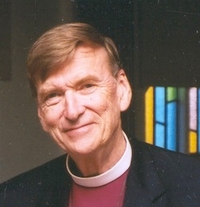Religious reformer Spong builds upon the program he initiated in Why Christianity Must Change or Die
as he outlines what he believes is an authentic faith for a new millennium. Taking cues from the works of John A.T. Robinson, Dietrich Bonhoeffer and Rudolf Bultmann, Spong proclaims that theism—the view that a supernatural deity creates and provides for humanity—is merely a "human coping device, created by traumatized self-conscious creatures to enable them to deal with the anxiety of self-awareness." The theistic God, for Spong as for Freud and Feuerbach before him, is nothing but a projection of our own desires and wishes. Since the theistic God was a construct that helped humans cope with their anxieties, the hysteria and trauma rampant in our society today is proof, says Spong, that the theistic God has died. But once theism is extinct, many of the central ideas of conventional Christianity, such as original sin, the incarnation and the Resurrection, tumble into uselessness. Spong's "new Christianity" is rather old, though. Just as in 19th-century theological liberalism, Jesus is god-presence and god is the ground of all being. Moreover, Spong recycles the central ideas of his previous nine books. At worst, this is an uninspiring and unoriginal tract for a formless and meandering quasi-spiritual life. At best, however, Spong openly reveals his honest struggles to fashion a living faith that transcends what he sees as the sterility of the Christianity in which he was formed. (Sept.)


